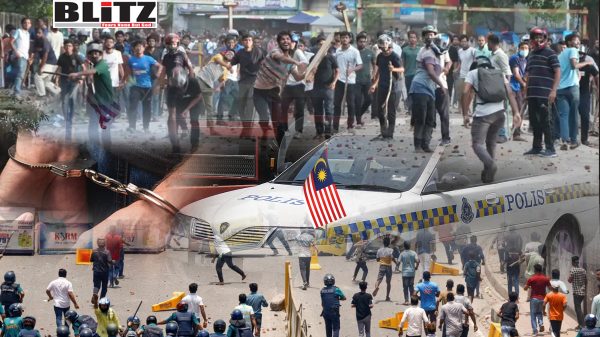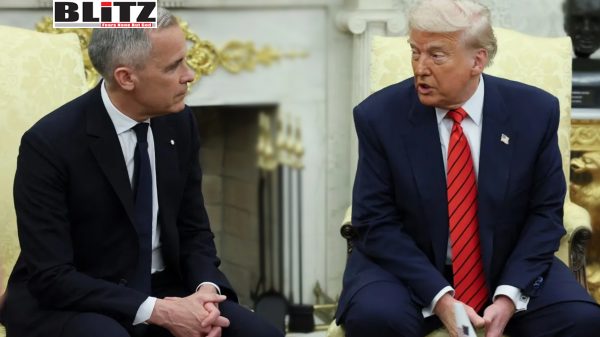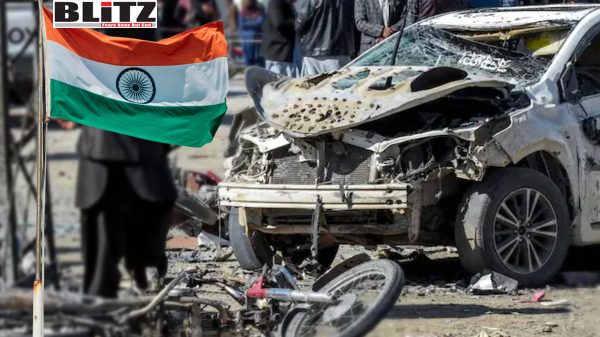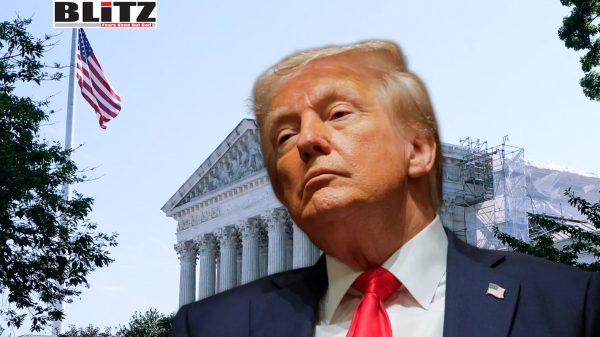Al Qaeda-connected BNP warns Bangladeshi traders not to buy Indian products
- Update Time : Friday, May 10, 2024

While ex-Hindu cyberterrorist Pinaki Bhattacharya is running despicable propaganda against India and Hindus and continuing “India Out” notoriety, leaders of Al Qaeda-connected Bangladesh Nationalist Party (BNP) are going store-to-store in Bangladesh asking traders to refrain from buying and selling Indian products.
According to sources, BNP leaders are providing a list of Indian products to local shop owners while they are mainly targeting basic products such as edible oil. Although they are naming some brands of edible soya bean oil as being “imported from India”, customs sources in Bangladesh told this author, almost 98 percent of the edible oil is imported from countries like Malaysia.
They said, BNP’s propaganda targeting some brands of soya bean oil might be funded and backed by some rival brands who wish to destroy those local bottling plants of edible oil.
The sources further claimed, for many years, some companies from several Asian countries have been attempting to enter the Bangladesh market to sell recycled used soya bean and palm oil by knocking-out imported oil from Malaysia and some other countries.
Meanwhile, commenting on BNP’s anti-India notoriety, Aditya Gowdara Shivamurthy and Shruti Saxena of the Observer Research Foundation (ORF) in an article wrote, “The BNP has had a rocky relationship with India. It has, in the past, used anti-India rhetoric and policies to harm Indian interests and further its domestic political goals. However, its current avatar – the “India Out” campaign seems to have been inspired by a similar movement in Maldives, led by then-opposition and now ruling coalition, the Progressive Alliance. Similar to the Maldives’, the opposition in Bangladesh is criticizing the government [of Awami League party] for damaging the country’s democracy and for alleged electoral fraud, interfering in the country’s domestic politics and institutions, and not resolving bilateral irritants between both countries. Religion is also being used as a pretext to criticize India and Indian policies.
“The BNP is keen on exploiting the country’s polarized politics by promoting nationalist sentiments against Sheikh Hasina and India. After having boycotted the 2014 and 2023 elections and a bad performance in the 2018 elections, it seems that the BNP is now laying the ground for the next elections with this campaign. The amalgamation of religion, nationalism, anti-Indian, and anti-incumbency sentiments through the India Out campaign is likely being used as a toolkit to weaken Hasina’s legitimacy and governance. This moment will likely attract the BNP loyalists, people disenchanted with the current government, and also appease hardliners like Jamaat-E-Islami and Hefazat-e-Islam, who oppose Sheikh Hasina and have been involved in anti-Indian violence before, as seen in 2021”.
According to media analysis, “Bangladesh’s location and India’s role in its independence have established the “India factor” as a powerful discourse in its domestic politics. The emergence of an “India Out” campaign on social media that advocates the boycott of Indian products with hashtags such as #IndiaOut, #BoycottIndia comes as a reaction to that.
“From Maulana Abdul Hamid Khan Bhashani to the present-day opposition alliance led by Bangladesh Nationalist Party (BNP), there have been instances of anti-India stand throughout Bangladesh’s history. Bhashani was pro-China and believed in a model of Islamic socialism. He criticized Sheikh Mujibur Rahman for making Bangladesh a satellite of India and tried to forge a coalition of the right and left extremists against the Awami League (AL). The BNP, which represents the right-of-center forces, has an orthodox social constituency inspired by Bhashani. The party is remotely controlled by its acting chairperson Tarique Rahman, Khaleda Zia’s son, from London where he is in exile”.
Rejecting any impact of BNP and its Islamist cohort’s “India Out” campaign, ruling Awami League says, “Historically, the Awami League (AL) has maintained a strong and intimate relationship with India ever since the country gained independence. The connection has been further solidified during the tenure of the AL government in the country. Therefore, the Bangladesh Nationalist Party (BNP) lacks a strong affiliation with the Indian government.
“The association between the party and the Jamaat-e-Islami, as well as the utilization of Bangladeshi territory by the Indian insurgent organization during the BNP’s 2001-2006 tenure, caused concern among the Indian group over the party’s efforts to bolster their friends. Despite the BNP’s efforts to enhance their connections with India in the later period, this did not materialize in actuality. Consequently, the party embraced an anti-India position before the election.
“Prior to the 12th parliamentary election, India made its position clear on the Bangladesh election by expressing its dissatisfaction with the attempts of powerful foreign actors to influence the political process of Bangladesh. In response, the BNP began criticizing the Indian government. The party contends that the Indian government is providing support to the current government to maintain its hold on power.
“The party’s top leadership explicitly condemned the Indian government’s stance on the Bangladeshi election. Following the conclusion of the election, the BNP joined a new campaign called “India-Out”, which started in the Maldives, urging citizens to refrain from purchasing Indian products.
Despite the party’s efforts to carry out its “India-Out” campaign, they have not garnered the endorsement of the general public for their cause. The campaign has been limited exclusively to the party leadership”.
Meanwhile, independent analyst Dr Pranab Kumar Pandey terms BNP’s “India Out” campaign as “gamble” and “playing with fire”.
Dr Pandey said, “The BNP’s decision to embrace the “India out” narrative lacks foresight and is wrong. Instead of analyzing the fundamental reasons for their inability to retain power or provide helpful feedback, they have opted to blame a neighboring country. These strategies serve to divert attention away from internal problems and can create conflict and hostility between nations with strong historical and cultural connections.
“The commercial connection between India and Bangladesh is tortuously interconnected and vital for the economic well-being of both countries. India is the biggest trading partner of Bangladesh, with considerable amounts of bilateral trade taking place in numerous industries. The relationship between both countries is marked by shared interdependence, as Bangladesh depends on India for essential imports including raw materials, machinery, and agricultural goods, while India gains from Bangladesh’s exports of garments, textiles, and medicines. Therefore, the implementation of the “India-Out” campaign requires strong support from citizens. But the fact is that there is no public support for BNP’s campaign, which means the future of such a campaign is uncertain”.
Commenting on the “India Out” campaign in Bangladesh, Kolkata-based senior journalist Monideepa Banerjie wrote, “Beijing is bent on challenging New Delhi’s natural primacy in the region. No wonder Prime Minister Modi has just doubled India’s assistance to the strategically located Bhutan from Rs 5,000 crore to Rs 10,000 crore.
“Perhaps Dhaka deserves more attention. India can’t take Bangladesh’s loyalty for granted just because it helped the country gain independence from Pakistan in 1971. New Delhi must pull out the thorns in the flesh, no matter how inconsequential they seem”.
Squadron Leader (retired) Sadrul Ahmed Khan, Member, Finance and Planning Affairs at Awami League, in a social media post said, “Boycotting products of India or any other country on the basis of false and misleading rumors is not part of any political etiquette. And the worst victims will be the common people”.
He highlighted that the BNP, which is backed by the US, has been publicizing a list of Indian products through online and offline channels as part of its campaign against Indian products.
The Awami League leader noted that the Indian products boycotted by BNP constitute “very little” in bilateral trade between the nations, but the wider goal of the campaign to hamper the economic ties would directly affect Bangladesh’s economy.
But, American media, instead of admitting this fact has been making frantic bids in giving further instigation to “India Out” campaign, where state-owned Voice of America in a report titled ‘India Out campaign gains traction in Bangladesh’ said – “While offering no evidence to support charges of Indian interference in the election, members of the groups, based in and outside Bangladesh, suspect New Delhi has used its influence to tone down criticism of the balloting process by the United States and other countries.
“More broadly, the boycott campaign has provided a focus for deep-seated resentment of India in Bangladesh, driven by border and water grievances and by a sense that India’s Hindu nationalist ruling party looks down on its Muslim neighbors.
“The campaign, labeled “India Out,” is mainly being driven on social media, and hashtags #IndiaOut, #BoycottIndia and #BoycottIndianProducts have been trending on Facebook for the past few weeks”.
Among the slogans that are being circulated by BNP and its cyber-jihadists are – “India is destroying Bangladesh”, “India is not a friend of Bangladesh”. An account on ‘X’, which is directly backed by BNP’s acting chairman and convicted terrorist Tarique Rahman goes by the name “Revolt”, which has been fanning anti-India and anti-Hindu hatred for months.
A large number of pro-BNP and pro-Islamist cyber-jihadists on social media platforms are continuously publishing highly-derogatory comments against India and Hindus while they are calling upon Indian Muslim voters not to cast their votes in favor of Indian Prime Minister Narendra Modi and ruling Bharatiya Janata Party (BJP) and suggesting them to vote in favor of Indian National Congress and “Islamic parties” in India. They even are going further by calling upon Indian Muslims to wage jihad against Hindus and consider the ongoing national election in India as “Vote Jihad”.












